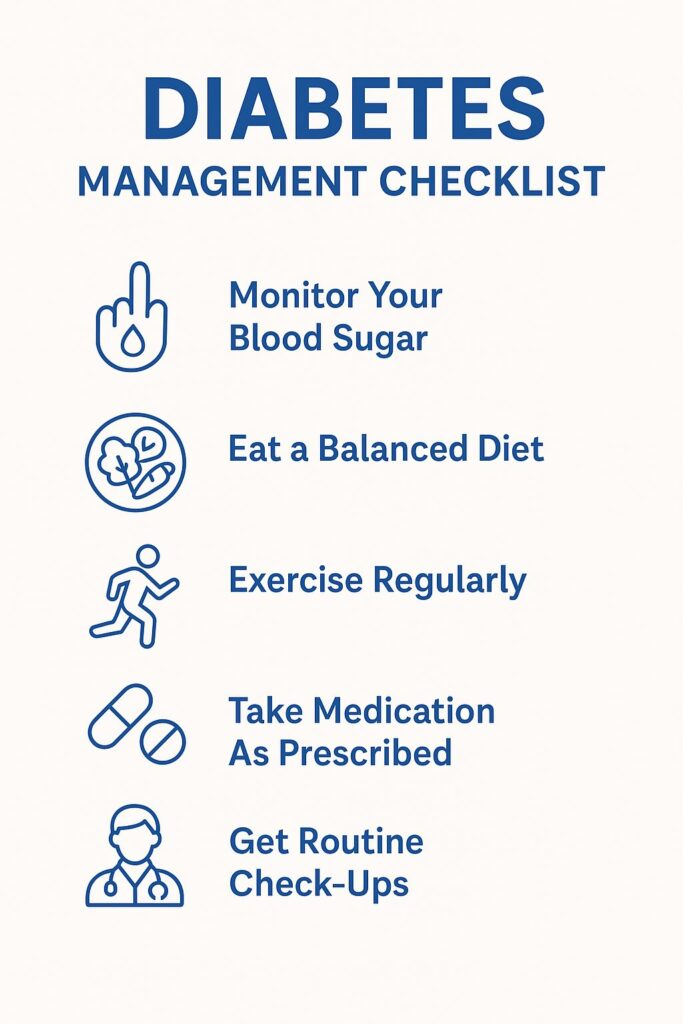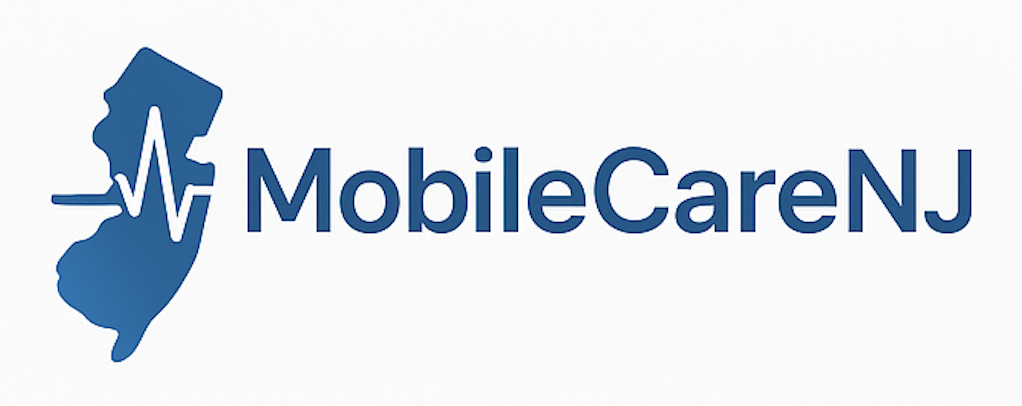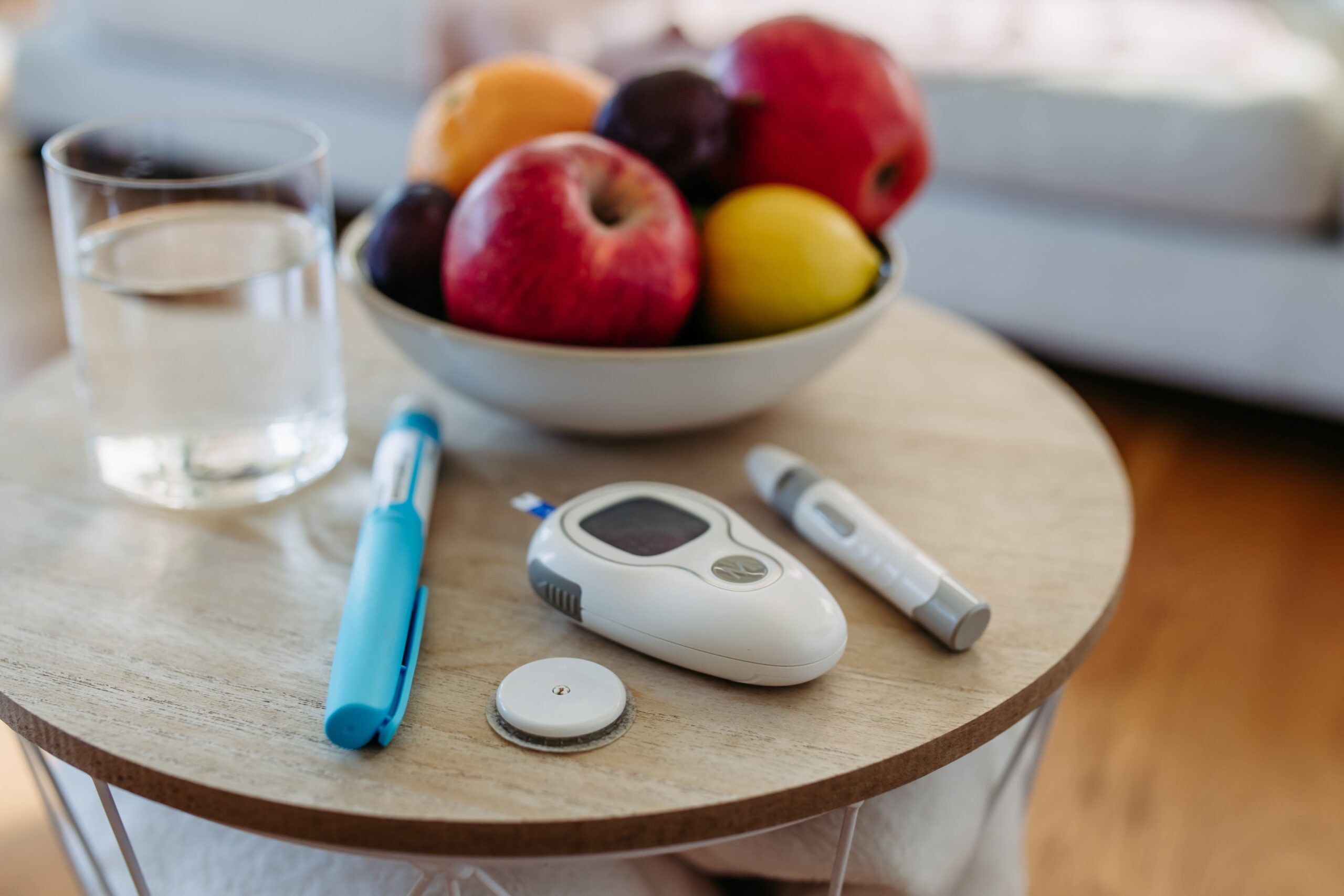Diabetes affects millions worldwide and is a leading cause of heart disease, kidney damage, and vision problems. Whether you have Type 1 diabetes or Type 2 diabetes, effective blood sugar management is the key to living well.
Recognize the Warning Signs
Common symptoms include frequent urination, extreme thirst, fatigue, blurry vision, and slow-healing wounds. Early detection makes management easier.

Daily Habits That Make a Difference
- Monitor Your Blood Sugar – Check levels regularly to spot patterns.
- Eat a Balanced Diet – Focus on whole grains, lean protein, healthy fats, and fiber-rich vegetables. Limit sugary drinks and processed foods.
- Stay Active – Aim for at least 150 minutes of moderate exercise per week to improve insulin sensitivity.
- Take Medications Correctly – Whether it’s insulin or oral medicine, consistency matters.
- Schedule Regular Check-ups – Yearly eye exams, foot checks, and lab work prevent silent complications.
Avoiding Long-Term Complications
Uncontrolled blood sugar damages blood vessels and nerves, increasing the risk of heart attack, stroke, kidney disease, and vision loss. Lifestyle changes and regular medical care can dramatically lower these risks.
When to Seek Immediate Medical Help
Get urgent medical attention if you have:
- Severe high or low blood sugar not improving with treatment
- Sudden chest pain or shortness of breath
- Unexplained vomiting or abdominal pain
- Sudden vision changes
Bottom line: With the right habits and support, most people with diabetes live full, healthy lives. Consistent care now means fewer problems later.

